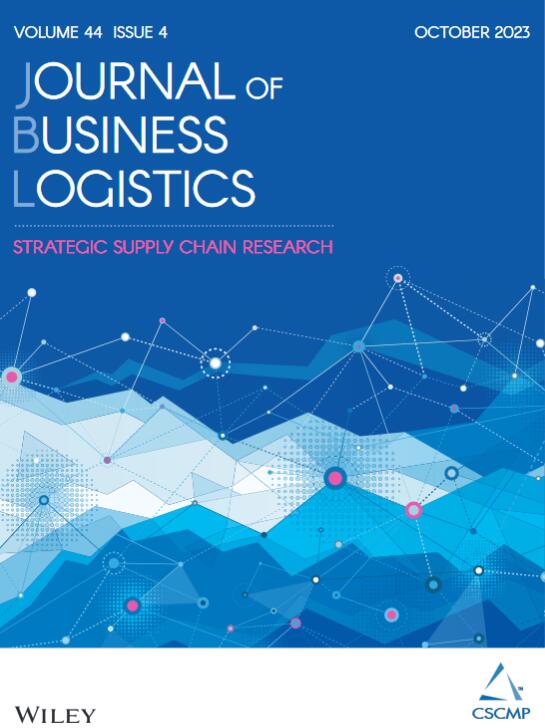Untying the Gordian knot: A systematic review and integrative framework of supply network complexity
IF 7.4
2区 管理学
Q1 MANAGEMENT
引用次数: 0
Abstract
The escalating complexity of supply networks is undeniable, and organizations grapple with myriad globally dispersed suppliers spanning diverse industries and operating amid volatility and uncertainty while having multifaceted interactions. In line with this, scholars have been investigating supply network complexity (SNC) for over two decades, yet the domain is not converging; definitions and operationalizations are varied, a multiplicity of theoretical perspectives exists, performance implications are inconclusive, and supply chain managers are certainly still struggling with the complexity of their supply networks. To address this critical gap, we conducted a rigorous systematic review of 116 articles and synthesized the extant research in a comprehensive nomological network of SNC. Our synthesis encompasses the following key aspects: (i) defining (sub)dimensions of SNC by reconciling diverse conceptualizations, (ii) elaborating on the direct and contingent effects of SNC by highlighting underlying mechanisms and relevant theories, (iii) identifying antecedents of SNC, and (iv) introducing a detailed categorization of SNC management practices and illustrating SNC management capability as an antecedent of such practices. We conclude by presenting an extensive research agenda illustrating the gaps in the literature and charting a path forward in relation to different themes, theories, and methods.解开高尔迪结:供应网络复杂性的系统回顾和综合框架
不可否认的是,供应网络的复杂性不断升级,组织与遍布全球不同行业的无数分散供应商作斗争,在波动性和不确定性中运营,同时进行多方面的互动。与此相一致的是,学者们对供应网络复杂性(SNC)的研究已经有二十多年了,但这个领域并没有融合;定义和操作是多种多样的,存在多种理论观点,绩效影响是不确定的,供应链管理人员当然仍然在与他们的供应网络的复杂性作斗争。为了解决这一关键空白,我们对116篇论文进行了严格的系统回顾,并综合了SNC的综合法理学网络中的现有研究。我们的综合包括以下几个关键方面:(i)通过协调不同的概念来定义SNC的(子)维度,(ii)通过强调潜在机制和相关理论来阐述SNC的直接和偶然影响,(iii)确定SNC的先决条件,(iv)介绍SNC管理实践的详细分类,并说明SNC管理能力是这些实践的先决条件。最后,我们提出了一个广泛的研究议程,说明了文献中的差距,并绘制了与不同主题、理论和方法相关的前进道路。
本文章由计算机程序翻译,如有差异,请以英文原文为准。
求助全文
约1分钟内获得全文
求助全文
来源期刊

Journal of Business Logistics
MANAGEMENT-
CiteScore
14.40
自引率
14.60%
发文量
34
期刊介绍:
Supply chain management and logistics processes play a crucial role in the success of businesses, both in terms of operations, strategy, and finances. To gain a deep understanding of these processes, it is essential to explore academic literature such as The Journal of Business Logistics. This journal serves as a scholarly platform for sharing original ideas, research findings, and effective strategies in the field of logistics and supply chain management. By providing innovative insights and research-driven knowledge, it equips organizations with the necessary tools to navigate the ever-changing business environment.
 求助内容:
求助内容: 应助结果提醒方式:
应助结果提醒方式:


